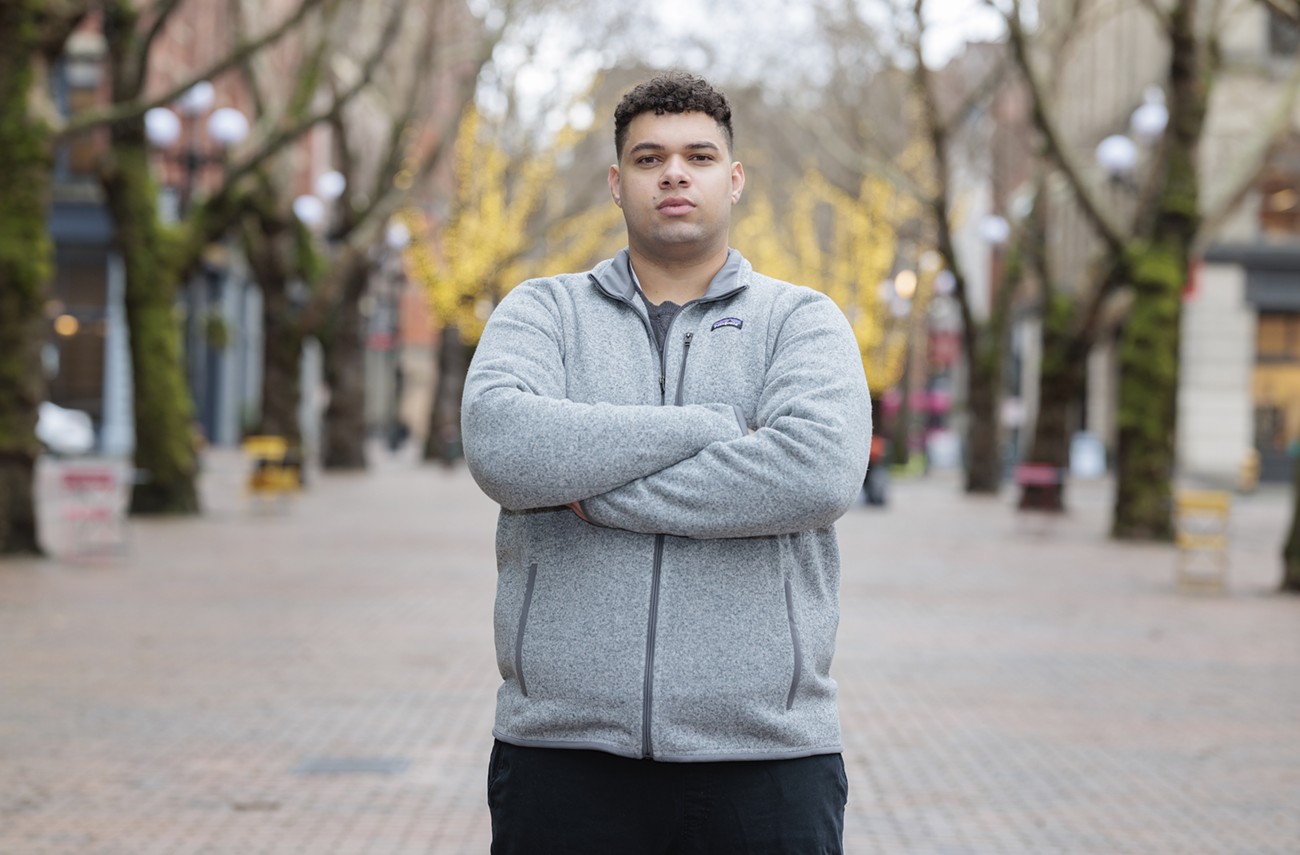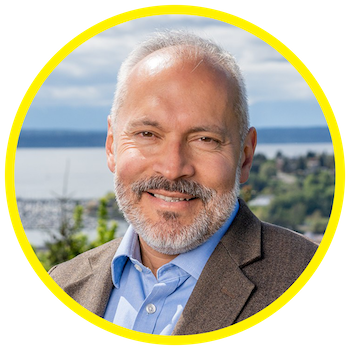Today, Amazon engineer and Belltown renter Ryan Krumbholz announced he will challenge Council Member Andrew Lewis for his District 7 seat, which represents Interbay, Queen Anne, and the downtown core. His office would focus on workers’ rights and cutting red-tape for developers to increase Seattle’s housing stock. While not hugely different from Lewis at a policy level, Krumbholz told The Stranger his personal experience with poverty would spur him to act “more urgently.”
“A lot of elected officials come from elite backgrounds. They have never faced barriers or obstacles in their lives, so these people are more likely to just stop at any roadblock rather than finding a path around it,” Krumbholz said.
Workers’ Rights
After growing up in poverty, couch-surfing during his early twenties, and working in the gig economy, Krumbholz said that landing a well-paying tech job helped him stabilize financially, though he claimed his net worth still sits at -$48,000 because of student loans. Despite his recent success, he said he won’t forget the low-wage workers he once worked alongside if he gets a job in City Hall.
True to his techy nature, Krumbholz wants to build an anonymous salary transparency database for residents and compile online resources for working trying to unionize. He would also propose automatic hazard pay for essential workers and amend Seattle’s “PayUp” policy to guarantee the minimum wage for all gig workers, a policy Lewis both sponsored and gutted to exclude many workers. Lewis told The Stranger he will write new legislation to include these workers, who he said have different enough jobs to warrant a separate law.
Given his emphasis on workers’ rights, Krumbholz said he’s going after labor union endorsements, which would cut into the support that helped propel Lewis ahead of his Chamber-backed competitor in 2019. Despite announcing his candidacy with nearly 50 endorsements, no union has thrown its weight behind Lewis yet.
Build the Buildings, Builders!
While labor endorsements and the big money that sometimes comes along with them matter in local elections, it's also important to win over other voters, believe it or not. This year, like so many past years, Seattleites will come to the polls with housing and public safety on the brain.
Krumbholz tagged the housing crisis as the most pressing issue facing the district, but he stumbled through his housing policy platform. The main takeaways: He thinks we can build our way out of the housing crisis, he lacks the confidence to outright say Seattle should do away with single-family zoning, he wants to secure more money for rent vouchers, and he doesn’t know how he feels about rent control.
Krumbholz told The Stranger he believes that the housing crisis is “mostly a supply issue” and that “if there's an abundance of housing, supply and demand will just do its thing.”
To cook up that “abundance of housing,” he wants to make it easier for developers to build. That means supporting the social housing initiative, exempting some market-rate housing projects from the design review process, and allowing for more upzoning, which he spoke about carefully.
At first, he said ending single-family zoning made sense in some neighborhoods but not in others. When asked to name a place in the district he’d want to protect from upzones, he said “I want to say Magnolia.” After some hand-wringing, Krumbholz concluded that the council could “realistically” upzone the whole City “if that’s what we need to do.” He more readily advocated for mixed-use zoning to promote housing, arguing that developers should build more housing in Westlake, though it is already zoned to allow commercial and residential development.
Police ¯\_(ツ)_/¯
As for policing, Krumbholz copied much of Lewis’s homework for his own platform. Krumbholz said the City needs to invest more in police alternatives similar to the Denver Star program, which is all Lewis ever talks about. He’s interested in funding alternatives with a progressive tax, but he’s not sure what kind of progressive tax, and he’s not sure if any of the funding should come at the expense of the police budget.
He added that policing is just one component of public safety, and he would fight for better bike and pedestrian infrastructure and maybe some helmets for those goddamn scooters.
So Is He a Lefty, or What?
Krumbholz, who resigned as chair-elect of the King County Young Democrats to run for this office, is still finding his footing in the race. If I must put a label on him, he said, he aims to be “challenging Lewis from the left.” Council Member Lisa Herbold mentioned potential challenges from the left as one of the many reasons she decided not to run for reelection.
That said, he holds many of the same policies as the incumbent. However, unlike Lewis, he doesn’t think converting downtown office buildings into apartments will meaningfully increase housing stock.
To him, the most notable difference between the two is style: “I don't want to just pass virtue-signaling, milquetoast, watered-down legislation that panders to progressives and the working class. I actually want to get shit done.”
In a text to The Stranger, Krumbholz elaborated further.
“I know City Council seats are nonpartisan, but they are all Democrats. Can’t keep electing do-nothing dems at every level of government and need to elect dems that have a spine to do big awesome things,” he wrote.
Krumbholz called himself a “social democrat” who’s a fan of the welfare programs in Scandinavian countries, but he’s an Elizabeth Warren voter. Moreover, he said he will not “actively” seek the endorsement of the Seattle chapter of the Democratic Socialists of America (DSA), just “unions and people.”
It's unclear how firmly Krumbholz will occupy the left lane, but there’s not much room in the center. Lewis has endorsements from leaders at the Downtown Seattle Association (different DSA– very different DSA) and Congressional Progressive Caucus Chair Pramila Jayapal.




















